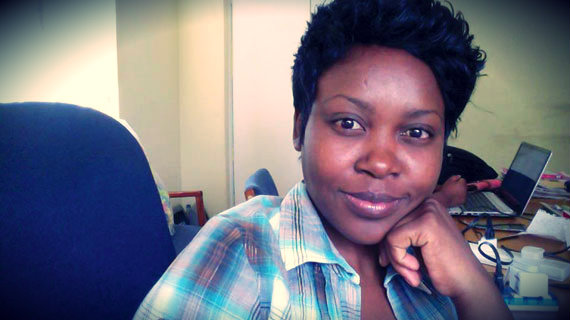
EVERYONE should stop what he or she is doing for five minutes each day and protest about something they absolutely cannot stand because protest is really a national duty.
Delta Milayo Ndou
Whether you merely verbalise it to a friend, colleague or family member, or grumble about it while in a kombi or voice your disgruntlement in a bar or hair salon — make sure you vent it.
The idea is to inculcate in our citizenry a culture of expecting more rather than settling for less, of expecting those entrusted with power to wield it on behalf of constituencies they purport to represent.
Just a few weeks ago, I marvelled at a front-page picture that appeared in The Herald of a high-powered government delegation responding to the Hwange ecological disaster — even ministers whose portfolios are so far removed from the National Parks and Wildlife still got off their behinds and showed face.
There was something confidence-boosting about that show of unified purpose among the Zanu PF legislators and an air of “things” being taken seriously at last.
Fast-forward to Monday October 7 when the police assaulted a group of women protesting over unpaid salaries on behalf of their husbands at the Hwange Colliery Company Limited leaving them battered, bruised, bloodied, injured and some of them hospitalised.
There’s not a pipsqueak from the erstwhile corridors of power demanding to know whose bright idea it was to unleash riot police on hapless women whose only crime was to rightly demand economic justice insofar as remuneration for their spouses was concerned — which remuneration was five months overdue.
- Chamisa under fire over US$120K donation
- Mavhunga puts DeMbare into Chibuku quarterfinals
- Pension funds bet on Cabora Bassa oilfields
- Councils defy govt fire tender directive
Keep Reading
There’s no Women Affairs, Gender and Community Development minister coming out guns blazing castigating this unconstitutional, brutal and unnecessary heavy-handedness on the part of the police.
There’s no Home Affairs minister putting up the pretence of giving a toss about reining in unruly members of the riot police force who think they are a law unto themselves and can get away with victimising defenceless women.
There’s no Labour minister roundly castigating the ill-treatment of workers in general, and mining workers in particular, leading to circumstances where they go for months without pay to the detriment of their families.
There’s no Child Welfare minister weighing in on the issue and pointing out how it is impossible to guarantee the rights or welfare of children without securing the rights of mothers specifically and parents in general.
Ordinarily, one would extend this berating to the women’s movement, relevant civil society and non-State actors for not being seen to do anything or care about the Hwange Colliery assault as an instantiation of fundamental social and economic justice issues that have been largely obscured by preoccupations with governance and democracy.
Ordinarily one would feel obligated to make mention of the conspicuous and curious silence of human rights defenders.
But these are not ordinary times. We are ostensibly living in the age of “men of action” and results-oriented legislators in the persons of Jonathan Moyo, Saviour Kasukuwere and even Joseph Chinotimba.
We are living in the age of a Zanu PF-controlled Parliament where there is no ambiguity about who the buck stops with.
They must prove us wrong and prove themselves right, otherwise this is going to be a very long and tiring five years for everyone concerned (“concerned” being the operative word given some people won’t show any concern at all).
This is the age of a new Constitution with an expanded Bill of Rights, including the right for the wives of mine workers to wake up any random morning and protest if their standards of living are compromised.
Hell!
If my child were starving, and I had a husband who woke up every morning to toil without any remuneration and I couldn’t afford a packet of salt or a bar of soap and couldn’t even plan on sending my kids to school and I knew there was money sitting under some mining fat cat executive who was bingeing on exorbitant allowances while my husband was going unpaid — I would damn well protest too!
Since the year began, at least three mines have had their operations disrupted by wives protesting over their husbands’ unpaid salaries and interventions by the police have not involved battering.
The Hwange Colliery incident is a dangerous precedent.
Thought must be given as to why it is the wives who end up demonstrating on behalf of their husbands as if the husbands have no capacity to demand their dues.
The weakening of labour unions in almost every sector has led to an increase in exploitation of workers and poor remuneration.
Where the hell are the labour unions, the women’s rights groups, the social justice activists, the human rights defenders, the legislators, the ministers?
Where the hell is Zanu PF with its cushy majority to wield power on behalf of the powerless? In short, where is social and economic justice in the age of a Zanu PF-led government?
We are guilty of being silent when we have cause to protest and we are guilty of absconding from the national duty of collective protest against social and economic injustice. But that’s just me.
I could be wrong. We can always agree to disagree.
l Delta Milayo Ndou is a journalist, writer, activist and blogger










